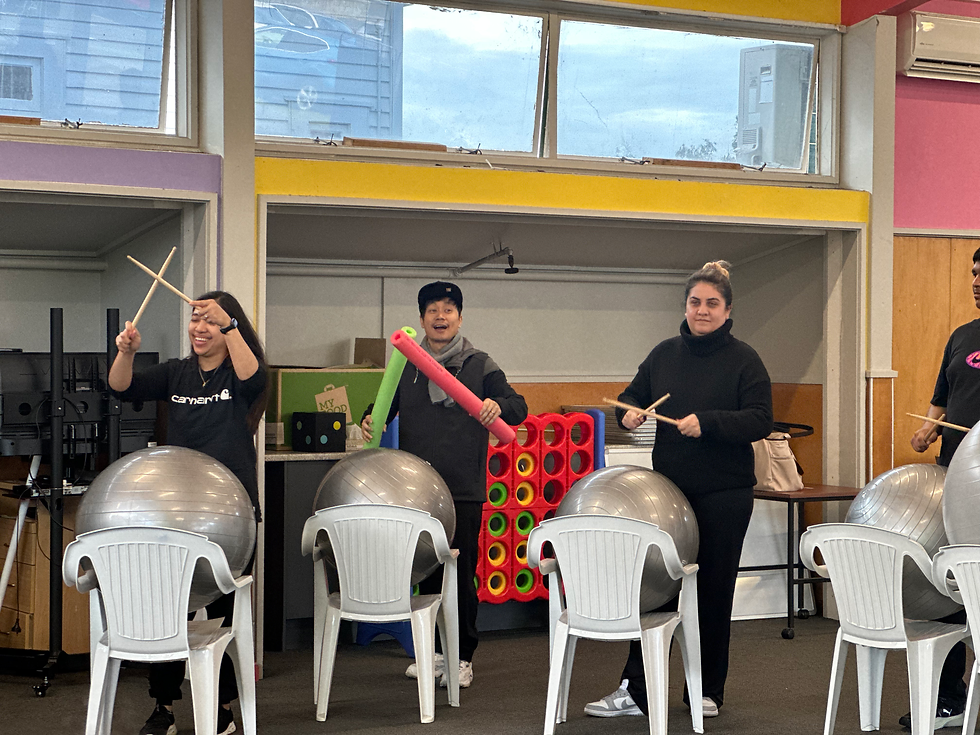Engaging the Mind: Activities for Dementia Patients to help them live their best lives
- Kauri Academy

- Mar 17, 2023
- 2 min read
The Manatū Hauora (Ministry of Health) website reads, “Dementia is the term used when a person experiences a gradual loss of brain function due to physical changes in the structure of their brain.” It is not a disease, but a set of symptoms associated with various underlying conditions that progressively effect and impair an individual's cognitive ability. This includes but is not limited to memory loss, thinking, and communication skills, all interfering with daily activities.
Though causes vary, the most common is Alzheimer's disease, which accounts for 60-80% of cases. Other causes include vascular dementia, Lewy body dementia, frontotemporal dementia, and mixed dementia.
Dementia can affect people of all ages, but it is most seen in older adults. The risk of developing dementia increases with age, with the majority of cases occurring in people over the age of 65.
Engaging in activities is an effective way to help individuals living with dementia maintain their cognitive abilities, reduce agitation, and improve their overall quality of life.
Here are some activities that may be helpful for individuals with dementia:
Music therapy: Listening to familiar music or playing musical instruments can be calming and soothing for people living with dementia. Some songs or tunes just have the way to take one down memory lane. It also helps improve the person’s mood!

Arts and crafts: Simple art activities like coloring or drawing, knitting or pottery can be an excellent way to stimulate the brain and provide a sense of accomplishment for patients. Our Diversional Therapy students came up with the fun idea of making handmade soap.
Physical activities: Exercise like walking, dancing, and yoga can help reduce stress, improve mood, and maintain physical fitness. You could also give cardio drumming a go and whoop it up!
Games and puzzles: Simple games like bingo, cards, or board games can help improve cognitive abilities, memory, and social interaction.

Reminiscence therapy: Looking through old photo albums, talking about past memories, or sharing stories with loved ones can help trigger memories and improve overall mood.
Pet therapy: Interacting with friendly pets can help reduce stress, improve mood, and provide a sense of companionship for residents. Furry friends for life!

Sensory activities: Activities that stimulate the senses, such as smelling flowers, feeling different textures, or listening to calming sounds, can help promote relaxation and reduce anxiety.
It's important to remember that every individual living with dementia is different, and not all activities will be appropriate or enjoyable for every one. It's best to consult with a healthcare professional or a specialist in dementia care to identify the most suitable activities for each patient.
But then give them a go and don’t let dementia blur the good times!
Watch this heartwarming video by Alzheimer’s Society (UK) and get a peek into the minds of people living with dementia - Kids Interview People With Dementia – Alzheimer’s Society, Dementia Action Week 2019
Ngā mihi
Kauri
#Dementia #DementiaCare #DementiaActivities #DiversionalAndRecreationalTherapy #CommunityHealth #RetirementHomes #AgedCare

Sources:




Comments